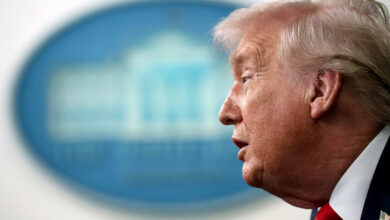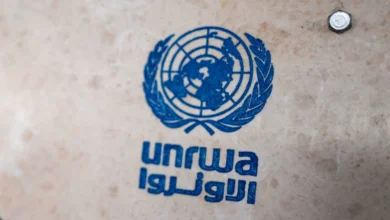Tokyo– Palestinians are weighing indirect peace talks with Israel to be mediated by the United States, Foreign Minister Riyad al-Malki said on Monday, adding that they should focus on border issues.
Echoing comments by Palestinian President Mahmoud Abbas over the weekend, Malki also said he needed more information from Washington, along with support from Arab states, before making a commitment to the US offer on the peace talks.
An Israeli cabinet minister said last week that Israel and the Palestinians would begin "proximity talks", with a US mediator shuttling between negotiating teams, to restart negotiations that broke down at the start of a war in Gaza in December 2008.
"This proximity talks should focus on one issue only. That issue is borders," Malki told a news conference, adding that this is because issues of water, security and concerns on Jerusalem would all be covered by such discussions.
Malki, visiting Tokyo with Abbas, added that the timeframe for the proximity talks should be limited to a maximum of three to four months.
Abbas has said he will only return to peace negotiations if Israel completely stops settlement-building in the occupied West Bank. He has rejected a limited, 10-month construction freeze ordered by Israel in November as insufficient.
Israel has said it will continue to build homes for Jews in and around East Jerusalem, territory it captured in a 1967 war and annexed as part of its capital in a move not recognized internationally.
Palestinians want the city as the capital of a future state.
Malki said he needed to hear more about what Washington has in mind for terms of reference for the proximity talks.
"And we need to know what if these talks fail — what will be the position of Americans and what will they do?" Malki added.
If answers from the US Middle East envoy, George Mitchell, to those questions were acceptable, Palestinians would discuss the idea with Arab leaders and, if they supported it, the Palestinian response to the offer would be positive, he said.
But he added: "We cannot really say in advance we are committed without really getting assurances that this process will be meaningful and lead to something tangible."
Malki said he saw no difference so far between the proposed proximity talks and the shuttle diplomacy employed by Mitchell, who has made more than a dozen visits to the region to try to revive the long-stalled peace process.
He added that the idea of proximity talks was Washington’s way to save its face by trying to show that it was not giving up.
US President Barack Obama disappointed Abbas last year when he softened his demand for a settlement building freeze, instead calling on Israel to exercise restraint in construction in the lands it captured in the 1967 Middle East war.




